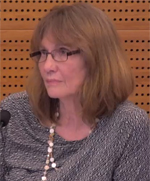The Financial Services Royal Commission has concluded the first week of hearings into the life insurance sector, repeatedly questioning whether the actions of insurers could be considered as misconduct under law or ‘falling below community standards and expectations’.

On the opening day of the hearings last week, the Commission was presented with a list of examples of possible misconduct which had been self-reported by life insurers following written requests from the Commissioner, Kenneth Hayne (see: Commission Details Potential Life Insurer Misconduct).
At the same time, Counsel Assisting the Commission, Rowena Orr, QC indicated that life insurance-related financial advice would not be examined during the current round of hearings as it had been considered during the second round of hearings into advice, which took place in April (see: Royal Commission Will Not Examine Life Insurance Advice).
Rather, Orr indicated the Commission would hear case studies about, and testimony from, ClearView, Freedom Insurance, CommInsure, and TAL.
ClearView admitted that its direct life insurance channel had adopted aggressive cold-calling phone sales tactics and had likely breached anti-hawking provisions thousands of time (see: ClearView Admits to 300,000 Breaches of Anti-Hawking Regulations).
ClearView Chief Risk Officer and Actuary, Gregory Martin also told the Commission the cold-calls targeted ‘lower socio-economic groups’.
Direct life insurance provider, Freedom Insurance, was the subject of a case study in which a 26 year old man with Down’s Syndrome was sold an accidental death insurance policy over the phone.

Freedom Insurance Chief Operating Officer, Craig Orton, told the Commission the company sold funeral insurance, loan protection insurance, accidental deathaccidental injury, life, and trauma cover.
Orton added that Freedom had decided to cease selling all of these products, except funeral insurance and loan protection cover through outbound sales calls, at 3pm the day before it appeared at the Commission on 11 September.
He defended the move, claiming the four products removed from outbound sales calls only represented 15 per cent of the group’s revenue.
The Commission also heard the claims ratio for accidental death insurance sold by Freedom was 16.1 per cent and its claims acceptance rate was 26 per cent, with a further 36 per cent of claims denied and 28 per cent withdrawn.
Orr claimed Freedom sales representatives used aggressive tactics due to high-level sales incentives which required them to meet set targets, to which Orton responded, “I agree, I think all incentives have that effect”, adding that it would be ending commissions for sales staff from the end of September.
Also last week, CommInsure Managing Director, Helen Troup, provided testimony to the Commission regarding the insurer’s use of outdated heart attack definitions, which was the subject of media coverage in 2016.

Troup said that while CommInsure had updated its definitions in March 2016, and back-dated them to 2014, it continued to reject claims made before that date, even where they met the new definition.
The Commission heard that CommInsure was aware its definitions were out of date in early 2012 but did not adopt the industry-standard until 2016 and further backdated the definitions to October 2012 using $22 million set aside for that task.
Troup also conceded that some direct-to-consumer advertising by CommInsure may have been misleading by stating that heart attacks were covered under its trauma policy when only severe heart attacks would have been covered due to the outdated definition in use.
A case study relating to the treatment of a mental health claim through an income protection policy offered by TAL was also presented to the Commission.
The claimant, a nurse, stated she suffered from anxiety but TAL rejected the claim citing non-disclosure of a history of work-related stress.

TAL General Manager of Claims, Loraine van Eeden, said, “The claimant was never given an opportunity to provide additional information before a decision was made”, and the case progressed to FOS who ruled in favour of the nurse.
After paying the claim, the Commission heard TAL hired a private investigator to conduct surveillance of the claimant and asked her to keep a daily activity dairy which van Eeden said was ‘absolutely bullying’ by the TAL claims manager.
According to Orr, TAL also accused the nurse of fraud and indicated it would seek recovery of nearly $69,000 of benefits already paid.
In total, the Commission heard about three claims cases handled by TAL, and under questioning from Orr, van Eeden – who took on the role in January 2018 – conceded the behaviour of claims managers was not appropriate.
“You know that there were multiple employees of TAL involved in extremely poor conduct across those three files over different periods of time. Do you accept that?” Orr asked, adding “What does that say to you about the culture at TAL?”
“It was – in terms of those case managers, it was really not appropriate,” van Eeden replied, adding the behaviour was of concern “… and that’s why we’re doing a lot of changes”.
The Royal Commission hearings continue this week, considering practice in the group life and general insurance sectors.





